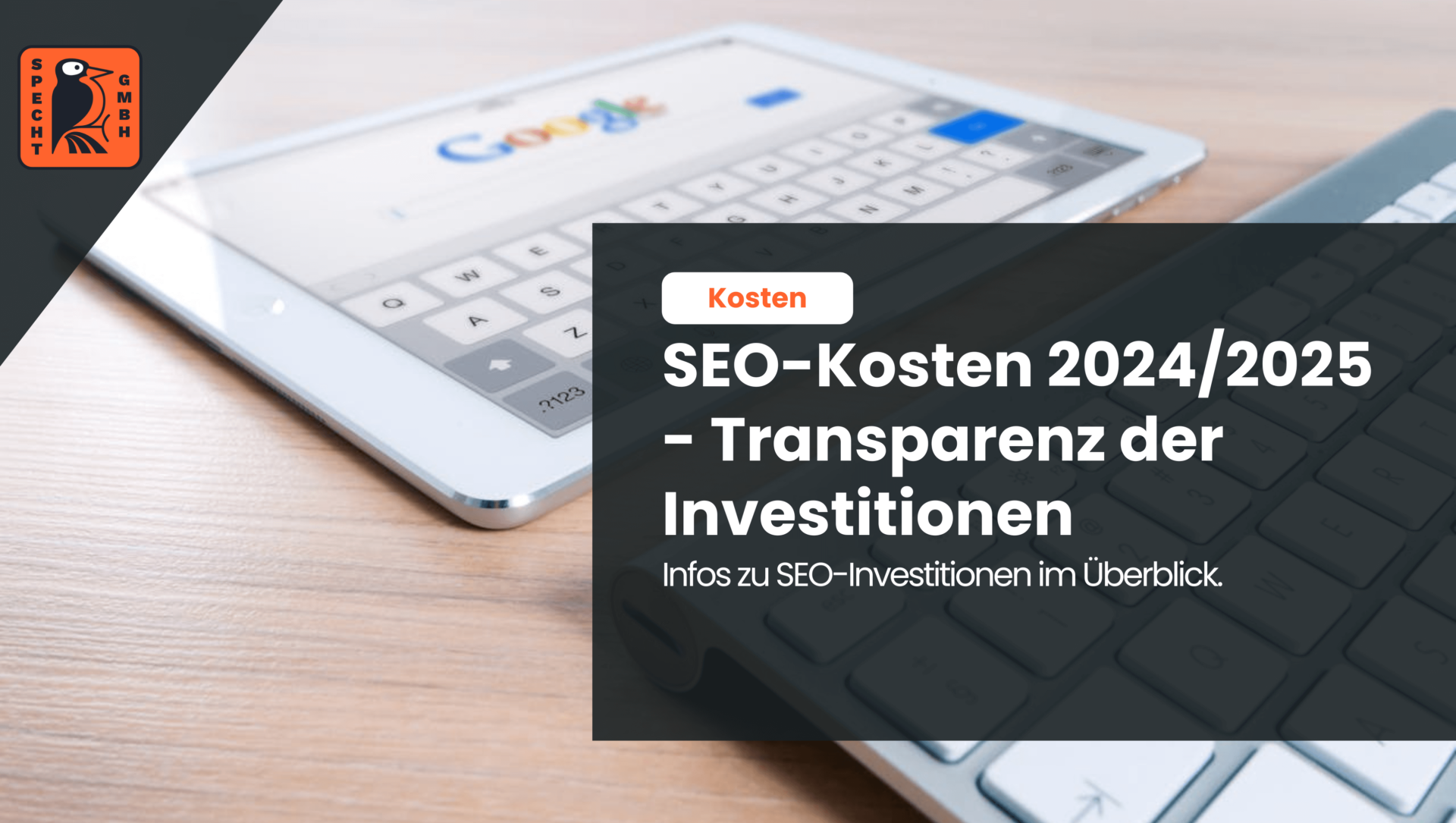In a nutshell: What is social media?
We are certainly all familiar with social media. These are social platforms and applications that enable people to network online, share content and communicate with each other. With the advent of Web 2.0, social media has established itself as a central part of our everyday digital lives.
The use of social media has grown steadily in recent years: billions of people around the world use platforms such as Facebook, YouTube and Instagram every day. They mainly use apps on their smartphones to stay in touch with friends and family, read news and like content.
Social media offers companies a unique opportunity to communicate directly with their target group. Through interactivity and user-generated content such as comments, companies can appear authentic and approachable in order to promote their online marketing.
The 5 most used social media platforms
With the multitude of social media platforms out there, it's important to know the leading networks. These social media dominate digital communication and are essential for many individuals as well as businesses looking to develop a successful online marketing strategy.
We at Timo Specht present the five most used social media platforms worldwide!
1st place: Facebook
With over 3 billion monthly active users, Facebook is the largest social media platform in the world! Private individuals primarily use Facebook to communicate with friends and family, share photos, texts and videos, join groups and plan events.
In turn, companies use the social platform, which was founded in 2004, primarily to present their brand and offerings, place advertisements and interact with customers. To this end, Facebook offers extensive functions such as Facebook pages for companies, the Facebook Marketplace and Facebook Ads.
But beware: Facebook only ranks first in terms of monthly user numbers worldwide! In Germany, the platform is far behind YouTube, WhatsApp and Instagram with just under 25 million monthly users.
The platform is also becoming less and less important for younger target groups. For this reason, companies with an adult target group between the ages of 25 and 35 in particular should consider targeted Facebook marketing.
2nd place: YouTube
YouTube has over 2.5 billion monthly active users worldwide, making it the leading platform for video content. In Germany, the video platform is even the most visited social platform with almost 71 million monthly users. The reason for this is probably the incredible range of topics and formats covered by this social network:
From entertainment and music videos and recorded TV shows to product presentations, practical everyday hacks, learning tips and more: there's almost nothing that doesn't exist on this platform. Over 700,000 hours of video material are uploaded to this social media platform every day! Unbelievable, isn't it?
Private individuals primarily use YouTube to consume videos or YouTube Shorts, upload their own content and interact with other users in the comments under the videos - YouTube has not had its own messenger since 2018.
YouTube is an important platform for companies to conduct video marketing, especially if their target group is between 18 and 35 years old. But how can you do marketing via YouTube?
For example, companies can upload tutorials and product presentations or share internal industry knowledge for the B2B sector in high-quality videos. In live videos, via comments and many other interactive functions such as voting, they can also build a community quickly and easily in order to strengthen their engagement.
With Google Ads, YouTube also offers paid advertising options that enable companies to advertise their videos in a targeted manner and achieve SEA success.
3rd place: Instagram
With around 2 billion monthly active users, Instagram has a very broad target group. This is probably due to the fact that the platform offers an incredible number of functions for networking and publishing content - for both private and business users.
As a platform that is more geared towards visual content, Instagram enables the sharing of photos, short videos, stories and reels. Live videos are also a popular option for businesses or public figures to engage with their community.
Private individuals primarily use Instagram to document their lives and find inspiration from other users, but also from brands or influencers.
They, in turn, rely primarily on visual storytelling in the social network. They market their products or services, present their values and philosophy and present themselves in an appealing visual and content-related light.
Influencer marketing and targeted advertising campaigns with Instagram Ads and in the Instagram Shop are also important online marketing tools for many companies.
4th place: WhatsApp
WhatsApp also has around 2 billion monthly active users with a very broad audience. As it is primarily a messaging app with a few other functions, it is mainly private individuals who use WhatsApp. They send text messages, photos and videos, record voice messages and have group conversations.
However, the social network also offers many opportunities for companies. With WhatsApp Business, they can communicate directly with customers, process orders and offer efficient customer service. The app is particularly valuable for direct customer contact and maintaining relationships .
But beware: If you have the telephone numbers of your customers, you are not automatically allowed to contact them. According to the GDPR, you first need the consent of the leads. Timo Specht GmbH gives you more tips on data protection on social media below in this glossary article!
5th place: TikTok
TikTok is the social media high-flyer of the last 6 years! Since 2018, the platform has attracted over 1.5 billion monthly active users worldwide and ranked 5th among the most used social media.
TikTok is therefore the leading platform for short videos and even though it has so far mainly been visited by private users, marketing via TikTok is also becoming increasingly important - especially for companies with a very young target group aged between 16 and 24.
Private individuals use TikTok primarily to create and consume creative content. They take part in challenges and follow trends such as the well-known LipSync videos or TikTok dances. The special thing about TikTok: There is only one format - and that is videos. These are a maximum of 3 minutes long, but usually no more than 60 seconds.
Unlike YouTube, TikTok is an extremely fast-moving platform that aims to provide users with as many videos as possible in the shortest possible time.
But companies are also already using TikTok to make their brand known through viral content; for example, by entering into influencer collaborations with well-known "TikTokers" or placing TikTok ads that are played out specifically to their target group. The interactivity of the platform also helps to increase engagement and customer loyalty!
Social networks you should also know about
Of course, in addition to our top 5, there are a huge number of other social networks that are relevant for specific target groups and markets. Here are some social media platforms that you should also be aware of:
X, formerly Twitter, is a microblogging service that was founded two years after Facebook - in 2016. The platform was bought by Elon Musk in 2022 and has come in for a lot of criticism since then: Fake news and hate speech were often the effects of absolute freedom of expression on X, which Musk cited as the new benchmark for the platform.
In October 2023, the platform only had around 14 million monthly users in Germany, putting it even behind Pinterest! But even if the platform has not always fared well, it is still very popular with many people of different ages. They mainly use the platform for:
- short news (tweets)
- Hashtags
- Retweets
- Trends
Companies benefit from Twitter / X as follows:
- Real-time communication
- Customer service
- Brand building
Pinterest is another social network that is particularly popular with women. This visual platform is primarily used to find inspiration and enables users to put together pinboards and mood boards on a specific topic in no time at all thanks to a perfect algorithm and a sophisticated search function.
Images from the internet can also be saved on private pinboards or your own image and video postings can be published. However, Pinterest marketing also offers the following opportunities for companies with a predominantly female, adult target group:
- Visual marketing
- Product presentation
- Traffic generation
In other countries, channels such as VKontakte (Russia) and WeChat (China) are extremely popular. These social networks have specific functions and target groups that enable companies to expand their international reach.
What is the significance of social media for companies?
Social media is an indispensable part of online marketing for companies. Studies show that over 90% of companies worldwide use social media for their marketing and communication.
The possibilities are manifold: We at Timo Specht would like to name the most important benefits of social media marketing and introduce you to social business channels that are particularly interesting for B2B companies and recruiting purposes.
An important marketing channel: What is social media marketing?
Social media marketing involves the use of social media to distribute content, place advertising and interact with your own target group.
Companies can create diverse, targeted content that is tailored to the interests and needs of their audience and also serves to present their own brand and offering.
Compared to other online and offline marketing strategies, social media marketing has several advantages:
- Direct interaction and feedback from customers
- High reach and potential to go viral
- Lower costs compared to traditional forms of advertising
- Precise targeting and personalization of advertising messages
- Easily measurable and comparable results
- Flexible optimization options and adaptation in real time
In addition, some social media offer special advantages for B2B companies that want to network in their industry, look for new employees or market their services. Timo Specht GmbH would like to introduce you to these now.
Not just for B2C: LinkedIn & XING for B2B & social recruiting
LinkedIn and XING are the largest business portals in Germany - LinkedIn is used by companies not only in the DACH region, but all over the world and could even record over 1 billion monthly users in 2023.
The Hamburg-based company XING, which had almost 13 million users in November 2023, cannot keep up. Nevertheless, XING has some advantages over LinkedIn:
- Local relevance in German-speaking countries
- Specific networking opportunities
- Large job market for the DACH region
- Integration with Kununu (review platform)
- Extensive options for event planning
XING is therefore particularly suitable for companies based in Germany, Austria and Switzerland. However, due to its limited international reach, globally active companies should rather rely on LinkedIn. This platform offers the following advantages over XING:
- huge international reach
- More extensive functions for social recruiting
- diverse content (specialist articles, industry reports, etc.)
- LinkedIn Learning offers online courses on business topics
- Sales Navigator helps to find customers in the B2B sector
- Detailed profile & more opportunities for brand building
Although LinkedIn is widely used internationally and offers many global networking and career opportunities, XING may be more attractive for professionals and companies in the DACH region. The comparison of both business networks helps to test the functions in practice and make the best choice for your own company.
The dangers & pitfalls of social networks
Social media offers numerous advantages and huge marketing potential for almost all industries and companies. At the same time, social media also harbors certain risks and challenges that you should be aware of - because only then can companies take appropriate measures to protect themselves and their community.
Specht GmbH would like to inform you about these dangers and give you tips on how to avoid typical mistakes.
Once it's on the Internet, it stays on the Internet
The first tip applies to both private individuals and business social media users: always be careful about what you post online and it is better to check your posts once too often than once too little.
Once content is on the internet, it is difficult or impossible to remove it - because the data is not only saved by the platforms, but also by other users! A screenshot is often enough for an erroneous post to spread across the entire Internet in no time at all.
Companies that are in the public eye in particular should therefore always carefully consider what information they share. Keep your social media presence professional with these tips:
- Check your published content regularly.
- Avoid controversial or unprofessional posts.
- Stick to a uniform corporate language and CI.
- Use privacy settings to protect sensitive information.
If you don't stick to these rules, you risk a shitstorm in the worst case: a type of attention that you should avoid at all costs!
Shitstorms, hate & bullying on social media
Inappropriate negative comments, hate messages and bullying are challenges that both private users and companies can face on social networks. Companies should develop strategies to respond appropriately to criticism and protect their online reputation.
The top priority here is: Do not delete. As long as the criticism does not violate the guidelines of the respective platform, this often makes the situation worse. Deleting gives the impression that criticism is not accepted.
Another rule: think first, then act. Although companies should stand behind their product or service, impulsive reactions to criticism or hate are not a good idea. Instead, companies should analyze critical feedback internally and respond to user opinions after consultation.
Here too, the key is to remain professional, rational and polite. In the best case scenario, companies even show understanding, promise improvement and offer solutions.
Bots & bought likes: a fake world?
Many public figures and companies have been criticized in the past for buying likes and followers in order to boast better figures and rapid growth.
If you are also thinking about simply buying your social media success, you should quickly abandon the idea - because you are not buying people who really like your posts or your company.
Instead, your followers will consist of bots that real users can also easily identify.
This practice can undermine trust in your business and have a negative impact on engagement - comments, likes and other reactions will no longer match the number of followers you have.
Instead, authenticity and organic growth are the key to sustainable success on social media. If you combine social media marketing with sophisticated SEO measures, you can build up a huge reach among your target group in no time at all.
Data protection on social media
The protection of other users and leads, but also their own data protection, is of the utmost importance for companies.
In their social media work, companies must ensure that they comply with data protection guidelines and handle their own and their contacts' data sensitively. This not only promotes user trust, but also prevents legal consequences.
Possible data protection measures:
- Privacy policy: Provide a clear and understandable privacy policy on all social media profiles.
- Data encryption: Use of secure connections and encryption for data transmission.
- Access rights: Restrict access to social media accounts to a small number of authorized employees.
- Regular training courses: Conducting training for employees on data protection and the safe use of social media.
Conclusion: What is social media?
Social media are not only suitable for entertaining and networking private individuals, but are now also a powerful tool for companies to increase their reach and communicate directly with their target group.
With a carefully planned social media strategy that takes into account the specifics of each platform, companies can increase their brand awareness and achieve their marketing goals.
With platforms such as Facebook, YouTube, Instagram and TikTok, this applies to both the B2C sector and B2B companies, which are primarily active in business networks such as XING and LinkedIn.
However, when it comes to social media marketing, brands and companies should always keep the dangers and challenges of social networks in mind.
Companies must handle user data and the possibilities of social media responsibly - this includes not only dealing with negative comments professionally, but also complying with the GDPR.






